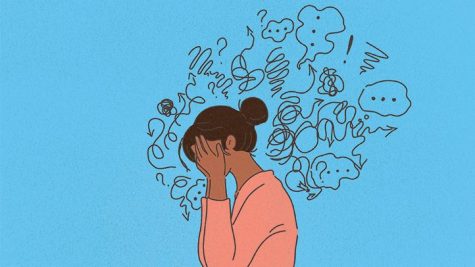Gender Roles and Mental Health
Today’s society holds many expectations for men and women. Often subconsciously, gender roles affect how we act.
From a young age, we are taught to adhere to these gender roles. Boys play with trucks and girls play with dolls. While these social constructs impact almost every aspect of our lives, they are especially relevant when discussing mental health.
Mental illness can affect men and women quite differently. For example, women are more likely to struggle with anxiety or eating disorders, while men are more likely to struggle with addiction or substance abuse.
Although many of these trends are the result of fundamental biological differences between the sexes, societal factors can also impact the mental health of both men and women in a variety of ways.
Men feel pressured to adhere to archetypal masculinity which boasts strength, dominance and stoicism. These expectations can produce negative results, like higher rates of violence and aggression as well as the squandering of one’s emotions.
In bottling up their true feelings, their mental health is frequently damaged as they are unable to address the issues caused by their emotions. This behavior is so frequent that psychologists refer to it as “alexithymia,” and they note that it is far more prevalent among men than among women. This habit may also be the reason why substance abuse issues are much higher among men, as they are trying to numb themselves and avoid dealing with emotional issues in order to maintain the image of a “strong” man. Sadly, men are also more likely to commit suicide.
The Center for Disease Control reports that men represent 77 percent of all suicide deaths. However, one interesting fact this study notes is that women are more likely than men to have suicidal thoughts, but because men often chose more violent methods when committing suicide, they are more likely to die in these attempts than their female counterparts.
The societal expectation that men must not show weakness hinders their willingness to seek help for health concerns, both mental and physical.
This often results in a worsening of their mental health conditions. These trends are prevalent among all age groups. For example, at Fordham University, only 21 percent of the students who use the resources available at Counseling and Psychological Services are male, as compared to the 79 percent of female students. Men generally suppress any difficulties they have, for fear that their peers will judge them for showing emotional “weakness.” It is imperative that mental health professionals are always aware of this factor and work to the best of their ability to encourage men to seek help if they need it.
While society will certainly not be able to change overnight, the best we can do is to continue to promote awareness of mental illness and spread the message that there is nothing wrong with seeking help if you need it. In fact, admitting a need for help is often an act of incredible strength.
Women are also negatively impacted by how society treats them. Some of the risk factors for mental illness they face are “gender-based violence, socioeconomic disadvantage, low income and income inequality, low or subordinate social status and rank and unremitting responsibility for the care of others.”
Domestic violence and sexual abuse, which is more commonly experienced by females than males, contribute to higher risk for post-traumatic stress disorder (PTSD). In addition, the oppression and discrimination women may face also puts them at risk for anxiety or depressive disorders.
An intriguing trend arises in women’s mental health when researchers learn how women are treated while seeking help for psychological conditions. Women are often not believed or taken seriously.
This practice dates far back in history. Women who were treated for “hysteria” as early as the 1600s were blamed for having too much sex, or a lack thereof. In many ways, this response to “hysteria” is a sexist explanation for things that men did not understand about women.
Thankfully, the treatment of women in regards to mental health improved significantly in the following centuries. However, gender bias still manifests today in mental health treatment. For example, women are more likely to be prescribed mood-altering drugs and more likely to be treated for depression compared to men, even when they have the same standardized results on depressive symptom scales. These statistics are damaging for both men and women, as women are often seen as overly emotional or dramatic while men may be seen as too “tough” to be suffering from any emotional disorder.
Hopefully, by spreading awareness of the sex and gender differences in mental health, we can overcome the obstacles that inhibit men and women from getting the help that they need for their conditions. We can also attempt to take a closer look into the ways that society can influence the mental well-being of all individuals to prevent disorders caused by societal oppression or discrimination. There is an abundance of data that has shown the biological differences between men and women with regards to mental health, which has had an important impact on the treatment men and women receive for mental illness. As efforts to bring more awareness to mental health continue, we hope to correct for gender-based biases and mistreatment.
If you are struggling with mental health issues, please do not hesitate to reach out to the following resources:
Fordham University Counseling and Psychological Services (Rose Hill): 718-817-3725
Suicide Prevention Lifeline: 1-800-273-8255
Crisis Textline: text START to 741-741
By Kelly Christ















































































































































































































